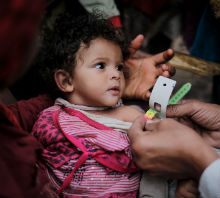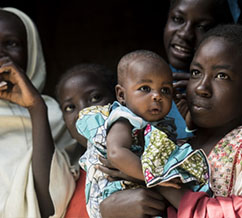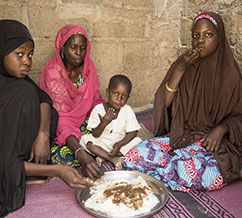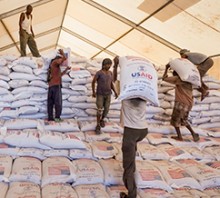Speeches Shim
From late March to late April, several Kingdom of Saudi Arabia (KSA)-led Coalition airstrikes caused the deaths of at least 109 civilians, the UN reports. Additionally, escalating insecurity in Sa’dah and Ta’izz governorates resulted in the death of an International Committee of the Red Cross (ICRC) staff member and destroyed a water system that supplies safe drinking water to approximately 7,500 people. Relief actors issued statements condemning the incidents and emphasizing the importance of protecting civilians and civilian infrastructure
The Yobe State Commissioner for Health declared a cholera outbreak in Nigeria’s BadeLocal Government Area (LGA) in early April. Health actors recorded more than 340suspected cholera cases in the state, more than 95 percent of which were from Bade,between March 28 and April 16.
Non-governmental organizations (NGOs) continue to report bureaucratic impediments, such as extra fees related to staff work permits and communications equipment, which restrict access to populations in need across South Sudan. Despite significant humanitarian access constraints, relief agencies—including USAID partners—continue to provide life-saving emergency assistance to populations in need throughout the country.
Government of Nigeria (GoN) authorities officially reopened the road from BornoState’s capital city of Maiduguri to Borno’s Banki town in Bama Local Government Area(LGA) on March 24. GoN officials had closed the road to civilian traffic in September 2014 due to escalated conflict in the area. The reopened route restores overland access toBorno’s town of Bama, prompting Borno officials to begin the first phase of internally displaced person (IDP) returns to the town on April 2.
On March 21, the GoN announced that armed actors had released 104 of the 110 schoolgirls abducted from the Government Girls Science and Technical College on February 19, according to international media. The mid-February attack and abduction resulted in at least five deaths, according to some of the released students.





Comment
Make a general inquiry or suggest an improvement.